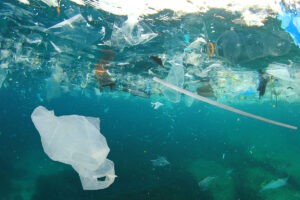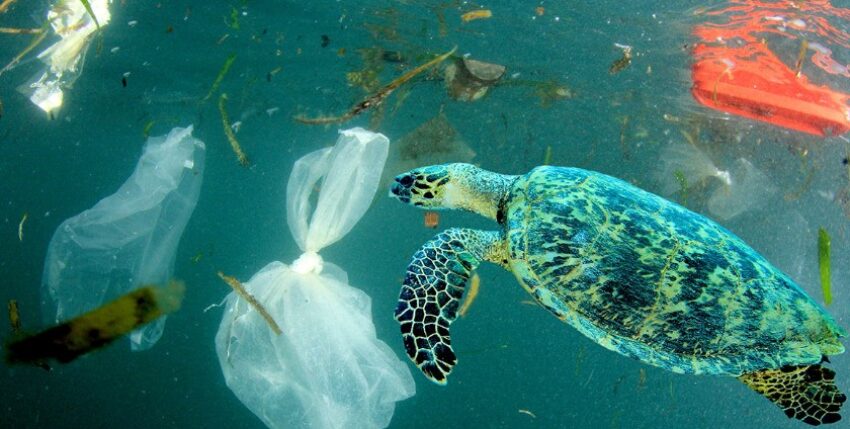One of the topics discussed at the World Climate Conference was the increasing pollution of the Mediterranean Sea. How should we tackle the problem? Here are a few snippets on the topic.
Biodiversity
The Mediterranean basin is home to a wide variety of flora (around 20,000 plant species, 60% of which are endemic) and fauna (around 17,000 animal species, of which only 30% are endemic) and is classified as a "biodiversity hotspot" by nature conservation groups. They warn that 20% of the species are threatened with extinction due to the impact of human activities. The overexploitation of resources, disturbance caused by tourism and leisure activities and relentless pollution in coastal areas, as well as the influx of invasive alien species through transport and trade, but also the drying up of freshwater inflows due to water abstraction and agriculture (especially on the Nile) pose a major risk to the richness and diversity of this ecosystem.
 MiddleSeaWaste
MiddleSeaWaste
Marine litter, especially plastic, plays an important role in this. According to UN estimates, 730 tonnes of plastic waste end up in the Mediterranean every day. Single-use plastics in particular account for almost 1001TP3 tonnes of all floating litter and now more than 501TP3 tonnes of seabed litter.
"Climate change and marine litter are closely linked," explained an environmental chemist and ecotoxicologist during a conference in the Mediterranean Pavilion at COP27: "Extreme weather events such as floods and storms lead to an increased input of litter into the marine environment - rising temperatures also promote the breakdown of litter into microplastics. Plastics in particular "live" for a very long time and therefore have a much greater potential than driftwood and natural materials to transport organisms across seas and oceans and favour the spread of invasive alien species.
Social innovation before technology
The Mediterranean Information Office for Environment, Culture and Sustainable Development (MIO-ECSDE) pointed out that social innovations as "measures on the ground" are more likely to be the answer to the problem than waste-preventing or waste-collecting technological solutions, which first have to be tested and scientifically evaluated before they can be used - and are generally more resource-intensive (machinery/infrastructure).
Examples include business networks in the tourism sector with the aim of phasing out single-use plastics, or in the fisheries and aquaculture sector with facilities for better disposal of fishing gear and nets.
The "Plastic Busters Initiative"
The University of Siena/Italy is working on the "Plastic Busters" initiative to counteract plastic pollution in the Mediterranean region. The priority is to create a "harmonised methodological approach", i.e. to "define a common language in the Mediterranean region" when coordinating the recording, prevention and collection of marine litter.
The project aims to demonstrate a correlation between marine litter and biodiversity by collecting data, particularly in marine protected areas. All of the areas analysed as part of the project had levels of pollution that were many times higher than the proposed/agreed limits.
Alternatives to single-use plastic
Thousands of chemicals are used in the production of plastics. The latest scientific findings list 13,000 substances that are used in plastics. A quarter of these are of concern, i.e. their toxicity and harmfulness to humans and the environment is not known. There is a lack of transparency, as there is hardly any information on the composition of certain products in the manufacturing processes. This shortcoming can only be remedied through decisions at a global level.
Overall, there are only three ways to tackle the problem of plastic waste: increasing the proportion of recycled plastic in production, introducing more reusable products in the consumer chain, and reducing packaging in all areas.
Conclusion and message
"It's not just about replacing materials, it's about changing the system and the way we live and behave."
Source: Euractiv








